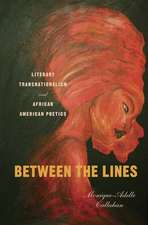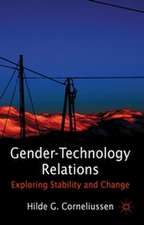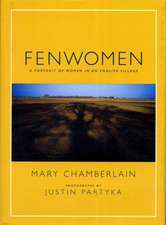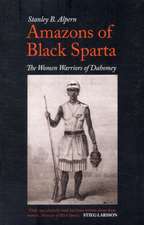Screens and Veils – Maghrebi Women`s Cinema: New Directions in National Cinemas
Autor Florence Martinen Limba Engleză Paperback – 12 oct 2011
Din seria New Directions in National Cinemas
-
 Preț: 175.37 lei
Preț: 175.37 lei -
 Preț: 160.45 lei
Preț: 160.45 lei -
 Preț: 159.42 lei
Preț: 159.42 lei -
 Preț: 215.33 lei
Preț: 215.33 lei -
 Preț: 312.83 lei
Preț: 312.83 lei -
 Preț: 199.83 lei
Preț: 199.83 lei -
 Preț: 256.62 lei
Preț: 256.62 lei -
 Preț: 264.54 lei
Preț: 264.54 lei -
 Preț: 161.15 lei
Preț: 161.15 lei -
 Preț: 179.69 lei
Preț: 179.69 lei -
 Preț: 228.92 lei
Preț: 228.92 lei -
 Preț: 231.64 lei
Preț: 231.64 lei -
 Preț: 210.07 lei
Preț: 210.07 lei -
 Preț: 241.84 lei
Preț: 241.84 lei -
 Preț: 263.52 lei
Preț: 263.52 lei -
 Preț: 248.64 lei
Preț: 248.64 lei -
 Preț: 320.42 lei
Preț: 320.42 lei -
 Preț: 327.55 lei
Preț: 327.55 lei -
 Preț: 327.93 lei
Preț: 327.93 lei -
 Preț: 253.06 lei
Preț: 253.06 lei -
 Preț: 271.15 lei
Preț: 271.15 lei -
 Preț: 210.14 lei
Preț: 210.14 lei
Preț: 164.60 lei
Nou
Puncte Express: 247
Preț estimativ în valută:
31.50€ • 32.82$ • 26.08£
31.50€ • 32.82$ • 26.08£
Carte tipărită la comandă
Livrare economică 03-17 aprilie
Preluare comenzi: 021 569.72.76
Specificații
ISBN-13: 9780253223418
ISBN-10: 0253223415
Pagini: 288
Ilustrații: 25 b&w illustrations
Dimensiuni: 152 x 228 x 19 mm
Greutate: 0.41 kg
Editura: MH – Indiana University Press
Seria New Directions in National Cinemas
ISBN-10: 0253223415
Pagini: 288
Ilustrații: 25 b&w illustrations
Dimensiuni: 152 x 228 x 19 mm
Greutate: 0.41 kg
Editura: MH – Indiana University Press
Seria New Directions in National Cinemas
Cuprins
Overture: Maghrebi Women's Transvergent CinemaAct I: Transnational Feminist Storytellers: Shahrazad, Assia, and Farida 1. Assia Djebar's Transvergent Narrative in The Nuba of the Women of Mount Chenoua (Algeria, 1978); 2. Farida Benlyazid's Initiated Audiences in A Door to the Sky (Morocco, 1998) Act II: Screens & Veils 3. Yamina Bachir-Chouikh's Transvergent Echoes in Rachida (Algeria, 2002); 4. Raja Amari's Screen of the Haptic in Red Satin (Tunisia, 2002); 5. Nadia El Fani's Multiple Screens and Veils in Bedwin Hacker (Tunisia, 2002) Act III: From Dunyazad to Transvergent Audiences 6. Yasmina Kassari's "Burning" Screens in The Sleeping Child (Morocco, 2004); 7. Selma Baccar's Transvergent Spectatorship in Khochkhach (Tunisia, 2006)Coda; Appendix A: Political and Cinematic Chronology; Appendix B: Primary Filmography; Bibliography
Recenzii
Martin (Goucher) studies seven distinctive cinematic works from three nations of the Maghreb: Algeria, Morocco, and Tunisia. Produced by a diverse group of women filmmakers--Assia Djebar, Farida Benlyazid, Yamina Bachir-Chouikh, Raja Amari, Naida El Fani, Yasmine Kassari, and Selma Baccar--these movies reflect the Algerian civil war, colonialism, patriarchy, undocumented immigrants, sexuality, identity, and the social mores that have dominated the political, social, and economic spheres in the Maghreb. The author delineates the complex negotiations that have played a role in the emergence of this cinema. Adopting various theoretical approaches, particularly thenotion of 'transvergence'--characterized by its crossings, fluidity, and unpredictability in all facets of film production--Martin examines how women directors steer their transgressive filmmaking careers across national, regional, and transnational boundaries by resisting censorship and the constant gaze of both local authorities and Western critics. Through borrowings and inventions, these filmmakers draw on Western models as well as their cultural roots to forge their own identity. This book inscribes a new chapter in women filmmaking on the Maghreb; it makes an important contribution to cinema, literature, and cultural studies. Summing Up: Highly recommended. Lower-division undergraduates through faculty and professionals. --Choice H. Bahri, York College, CUNY, May 2012--H. Bahri, York College, CUNY (01/01/2012)
Notă biografică
Descriere
Discusses the cinematic vision of North African womens directors















